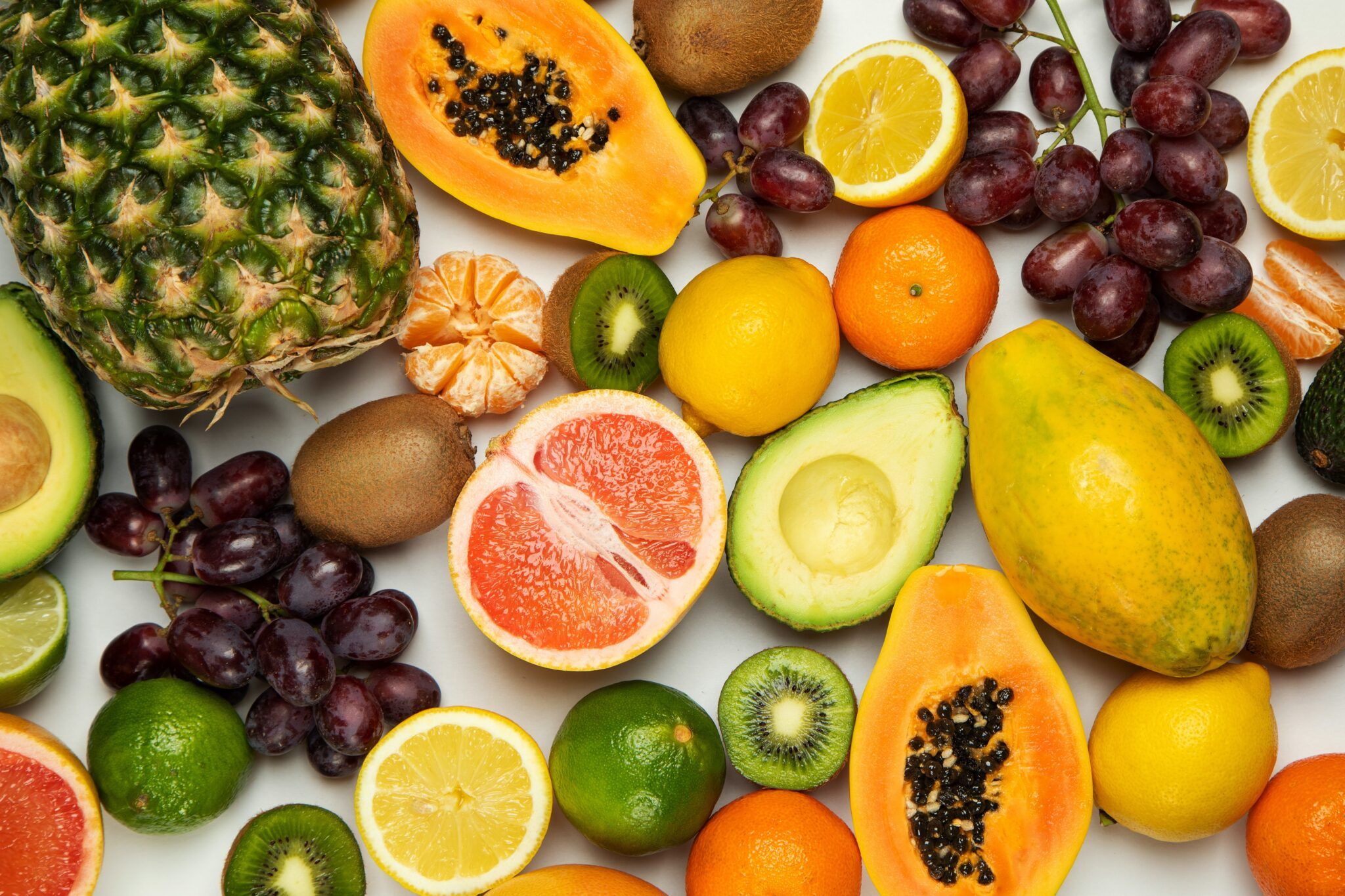With this article, I begin a series on Vitamins and Minerals, which are a key factor in our diet. In the first two articles, I’ll talk about Vitamins in your Diet, how they help our health and where we can find them in the food. In the following articles, I’ll cover the most important minerals in our diet.
Vitamins are micronutrients not synthesized by the body, but required in small amounts, play a critical role in maintaining good health. They are very important not only because of its deficiency cause diseases but, if they are provided in their optimal amounts, they may help to prevent chronic diseases such as cardiovascular, cancer and aging.
The Vitamins in your diet do not provide energy themselves, contrary to popular belief, or calories. They play as catalysts in chemical reactions, causing energy release. They are essential in the metabolic processes that the body goes through when we feed ourselves. In simpler words, they help convert food into energy.
Vitamins are classified into two groups: water-soluble and fat-soluble vitamins. In this first part we will focus on water-soluble vitamins.
Water-soluble vitamins are those soluble in water. Are eliminated in the urine and almost all of those should be eaten daily, as the storage in the body is limited.
The main soluble vitamins are:
- B vitamins (B1, B2, B3, B5, B6, B12)
- Vitamins C
- Folic Acid
Let’s talk about each of those.
Vitamin B1 (Thiamine)
This vitamin plays an important role in the metabolism of carbohydrates so that a deficiency affects the tissues that are dependent on them. It was observed that they play a key role in the nervous system. Smokers and alcoholics have higher requirements and are more prone to deficiencies. The main source of thiamine is whole grains, legumes, green vegetables, fruits, liver and milk, eggs and fish.
Its deficiency causes the disease Beri-Beri in its initial stage produces insomnia, irritability, loss of concentration, loss of weight and muscle weakness. Then leads to muscle atrophy and neurological disorders. In its most severe stage cause edema and heart failure symptoms.
It is a very heat sensitive vitamin so that large losses occur in washing and cooking.
Vitamin B2 (Riboflavin)
Riboflavin also plays a fundamental role in the metabolism of carbohydrates and amino acids (the building blocks of proteins). It plays a big role in the processes of cellular respiration, embryonic development, and maintenance of the nerve sheath. It also helps the growth and reproduction and improves the condition of the skin, nails, and hair. The main sources of riboflavin are milk, cheese, eggs, liver, and fish.
Its deficiency can be shown in lesions of the skin, mucous membranes, and eyes. Usually, drinkers or smokers and people who follow a vegan diet (no eggs or milk) and do not take supplements may have deficiencies of this vitamin.
Riboflavin in Vitamin more resistant to heat and oxygen, but unstable to light.
Vitamin B3 (Niacin)
Niacin is also involved in the metabolism of carbohydrates, fats, and proteins, it also helps blood circulation and respiration. Contribute to the growth, proper functioning of the nervous system and the condition of the skin.
The main sources of niacin include meat of beef, lamb, poultry and pork. Fish like tuna contained large amounts, the liver is also rich in niacin; milk and milk products, in addition to oats, dates, and avocados help niacin synthesis; Food made of whole grains, legumes, potatoes, peanuts are also rich sources of this vitamin.
Deficiency causes nervous system disorders, digestive disorders, constant fatigue, mouth ulcers, skin problems, problems with gums and tongue. There is a disease caused by the deficiency called pellagra, which causes skin problems with exposure to light, mucosal inflammation, diarrhea, and psychic disturbances including mental confusion and irritability. Deficiency of this vitamin affects all body cells.
It is a stable vitamin to heat, light, and oxidation.
Vitamin B5 (Pantothenic Acid)
This vitamin is also involved in the production of energy from carbohydrates, proteins and fats. Also in the biosynthesis of fatty acids, cholesterol and cholesterol derivatives. Work in the synthesis of adrenaline (stress hormone) in the adrenal glands from cholesterol. In conjunction with other B vitamins, is used to improve and alleviate disorders caused by stress. Reduce Heartburn with biotin and thiamine, therefore, helps relieve gastritis, stomach ulcers, and other gastric pathologies.
Vitamin B5 is found in almost all plant foods and animals foods. They very good sources are liver, eggs and yeast, broccoli, potatoes, tomatoes, mushrooms, whole grains, and legumes. Deficiency is rare because as it is in almost all foods.
It is sensitive to heat and moisture.
Vitamin B6 (pyridoxine)
This vitamins works, along with other B vitamins, in the metabolism of carbohydrates, fats and some amino acids. Involved in the formation of antibodies and hemoglobin. Helps accelerate metabolism when it’s slow and to control normal blood sugar levels. This vitamin is also essential for the proper functioning of the thyroid.
The main sources of pyridoxine are whole grains, wheat germ, legumes, liver. It also contains some vitamin B6 milk, eggs, vegetables and fruits. Its deficiency includes poor growth, weight loss, skin lesions, and anemia.
It is a light-sensitive but heat stable vitamin.
Vitamin B12
It is a fundamental vitamin to the formation of red blood cells and the body growth and tissue regeneration. The deficit leads to ‘pernicious anemia’ (pallor, fatigue, etc..). Aids in the metabolism of homocysteine.
In a vitamin that occurs in the intestinal flora so its deficiency may be caused by disorders of absorption or transportation in the intestine. Vegans have more risk of its deficiency because animal foods are the main source: kidney, brain, egg yolk, mussels, sardines, salmon.
Vitamin C (ascorbic acid)
Vitamin C should be consumed daily because we can not synthesize it. It is a powerful antioxidant. Contribute to the assimilation of some amino acids, folic acid and iron. Participates in the biosynthesis of hormones (dopamine to noradrenaline), increases resistance to infection by enhancing immune system activity. Also counteracts liver poisoning and the harmful effects of pesticides in the stomach.
The main sources are citrus fruits: kiwi, gooseberry, strawberry, lemon, orange. Also vegetables like peppers and broccoli.
The deficiency of this vitamin causes fatigue, irritability and joint pain. The needs of ascorbic acid are higher in pregnant women, smokers and people under stress or anxiety.
It is very sensitive to oxidation, heat and light. So it is better to consume foods as soon as possible after cutting.
Folic Acid
Involved in the synthesis of DNA and RNA. In very important for women to maintain adequate levels especially before and during the first week of pregnancy for the correct formation of the fetus. You can check out more about this article vitamin Folic Acid: Essential in the childbearing age.
The main food sources are green leafy vegetables: spinach, peas, Brussels sprouts, beans; liver, nuts: walnuts and almonds; whole grains and legumes.
Its deficiency causes anemia, like vitamin B12, but not cause neurological symptoms as the last one. Therefore they can be confused. Having deficiency during early pregnancy can cause neural tube defects in the fetus causes spina bifida on the baby.
It is sensitive to light, oxidation, acids and alkalis
Now that you know that most of these vitamins are excreted in the urine daily, it is very important to be a continuous intake of this vitamins daily with food and supplements to b sure that you are getting all your need.
In Part II we will discuss the fat-soluble vitamins.







